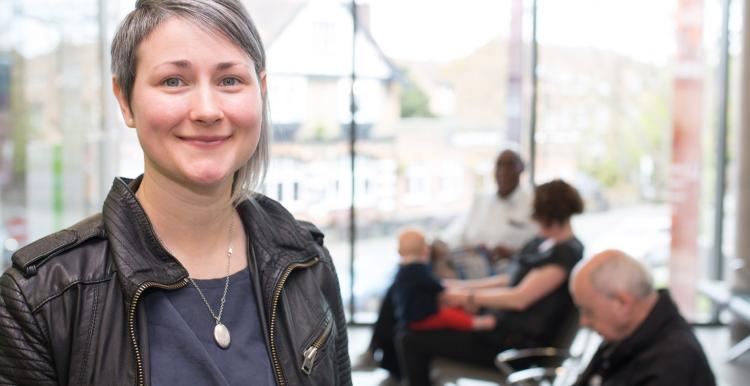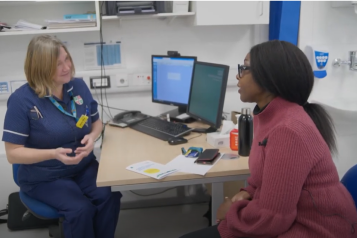ADHD and autism: Tackling the long wait for support

People in Milton Keynes have told us about extremely long waits for autism and ADHD support, and faced challenges getting the care and medication they need. The picture across England is the same.
We look at what people have told the Healthwatch network, what steps the NHS can take to improve things, and explain why we need more people waiting for ADHD or autism support to tell us your experience.
What do we already know?
As of June 2023, NHS ‘experimental’ data shows that 143,119 people were waiting for an autism assessment in England. NICE guidance states that no one should wait longer than three months between being referred and first being seen, but 83% of people reported that they have been waiting longer than 13 weeks.
There is no official national data on waiting times for autism and ADHD services, but public feedback has raised seven key questions:
- Do we need better national and local data to understand how long people are waiting for ADHD and autism assessments following a referral?
- Are the closures of services in some areas making the waiting times for remaining services longer?
- Are Integrated Care Boards (ICBs) being held accountable when local services close their waiting lists and no longer provide care?
- What are the impacts of not having enough specialist staff for services, and of ongoing medication shortages and delays?
- Is there support and information for people while they wait for a diagnosis?
- Are council and NHS support services working together effectively to help meet the needs of adults? And are these teams working with education teams to support children?
- Are patients turning to private providers for diagnosis, but then being denied treatment or medicines through their NHS GP?
Do you have an experience you’d like to share?
Do you have autism or have ADHD? Or are you struggling to get a diagnosis? We want to hear from you. Sharing your story with us can help us call for change.
Why understanding people's experiences matters
Hidden waits and delays in diagnosis
To access support for ADHD and autism, people first must be referred by their GP and get a formal diagnosis. However, it is unclear where people can access the help they need across the country.
Diagnosis is particularly challenging for people, with multiple appointments sometimes necessary to convince healthcare professionals of the need for further investigation.
There can be long waits for initial referrals, and we have heard that it can take years for some individuals to get a diagnosis.
"I was told it would "be a waste of resources" to send me to a specialist for further investigation, which made me feel I was not worth their time, effort or funding at a GP surgery who says they specialise in learning disabilities.
I do not want a label as a way to make excuses for myself. I just want proof so I am able to better understand myself and have a better quality of life and get into work.”
Support for people while they wait
As well as long waits for diagnosis, we have also heard that people are not always given information and support while they wait. Getting advice and resources to help you understand your condition and manage your mental health while you wait is important. Getting regular communications from the NHS services can also reassure you that you haven’t been forgotten.
The impact on school and education
Without a formal diagnosis, young people with suspected ADHD or autism may find it harder to access the support they need at school or full-time education.
Access to this support, including an Education, Health and Care Plan and access to support workers, is often key to addressing the concerns of young people and their families.
Delays in medication
We have also heard stories of national shortages of ADHD medications. People who need and should have access to their medications are not always able to access it in the quantity or timescale they need. This includes some children who cannot attend school without access to their medication.
This causes considerable concern, especially when there is a lack of clarity on when the problem may be resolved.
This feedback was backed up by a recent survey of people with ADHD, carried out by the charity ADHD UK. It found that just over a quarter (27%) of patients had received no medication since September 2023, with a third (33%) reporting that they had experienced “long gaps”. Concerningly, the survey found that 70% of respondents had rationed their own medicine because of the shortages.
What can Healthwatch do about this?
Many of the issues shared in this article are unfortunately not new.
But following a sharp rise in stories of long waits for assessment and poor experiences, Healthwatch England (HWE) have committed to investigating these issues further. We will continue to gather your stories.
As well as encouraging more people to share their experiences to help strengthen our evidence, HWE are speaking to national decision-makers to escalate the concerns we have heard.
They are calling for the NHS to put a plan in place to:
- Improve commissioning of NHS services, so teams have the resources to meet demand. This should include modelling of unmet need across England.
- Support NHS teams with updated guidance, including on waiting well so that better support is provided to patients waiting for diagnosis. This should include signposting to resources and information that ensures patients are informed about ADHD and kept updated on how long they may be waiting for diagnosis.
- Commit to increasing the number of clinicians who specialise in support for ADHD and autism.
- Collect and publish national data on ADHD referrals and waiting times.
- Improve integration of services by bringing together key partners within integrated care systems to address long waits and join-up care for patients.
- Address issues with increasing numbers paying for private diagnoses not subsequently able to access medication through their GP due to concerns about the quality of diagnosis.

